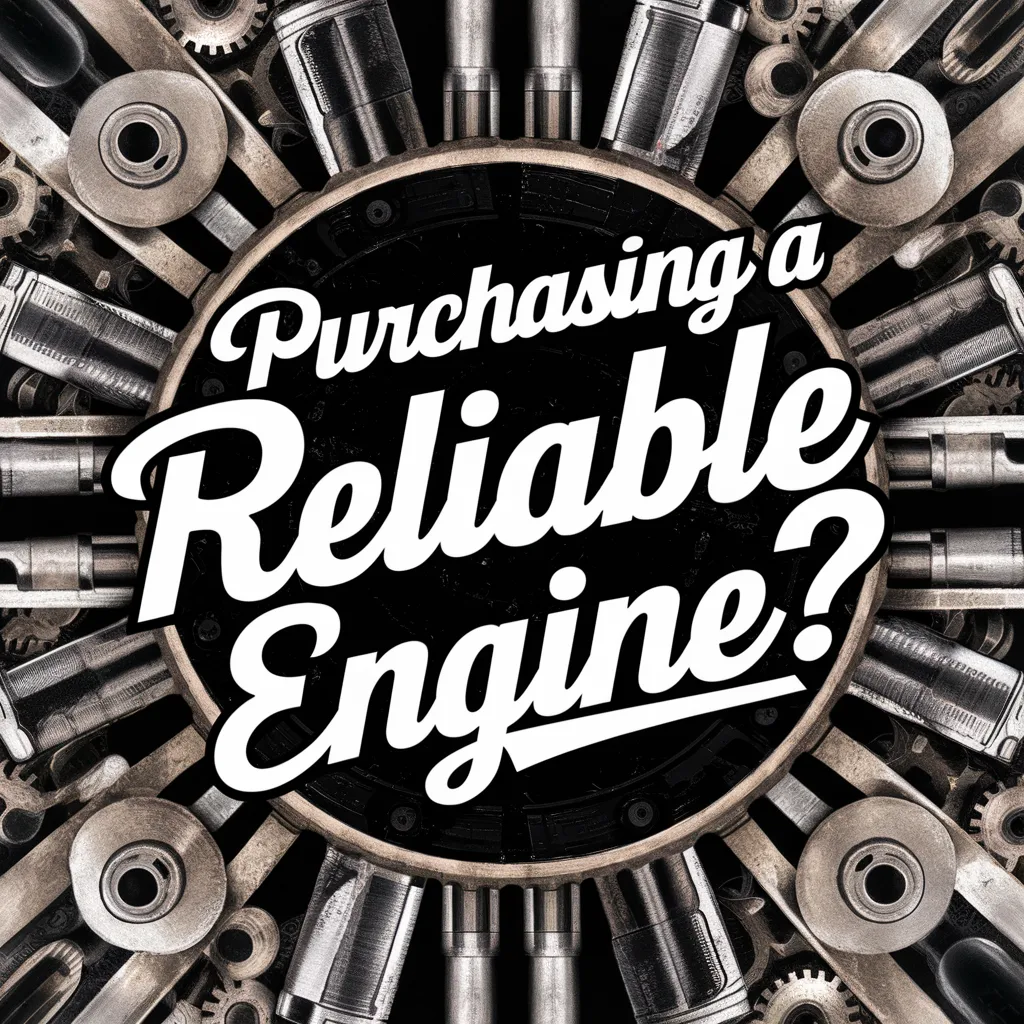A car’s engine is its heart, and just like our own hearts, the health and reliability of an engine are paramount to a vehicle’s overall performance. Whether you’re a seasoned automotive enthusiast or a car owner facing engine troubles, knowing what to look for when purchasing a reliable engine is crucial. This guide will walk you through the essential factors to consider, ensuring you make an informed decision.
Factors to Consider When Purchasing a New or Used Engine
Purpose and Compatibility
First and foremost, determine the purpose of the engine. Are you looking for an upgrade, a replacement, or a specific performance enhancement? Ensure that the engine you’re considering is compatible with your vehicle’s make, model, and year.
Condition and History
For used engines, understanding the engine’s history is vital. Check for mileage, previous maintenance records, and any signs of wear and tear. An engine with low mileage and a clean service history is often a good indicator of reliability.
Performance Specifications
Evaluate the engine’s performance specifications, such as horsepower, torque, and fuel efficiency. These factors play a significant role in determining how well the engine will perform under various conditions.
Warranty and Certification
A warranty can provide peace of mind, especially when purchasing a used engine. Look for engines that come with a comprehensive warranty and have been certified by recognized automotive authorities.
The Role of Engine Performance in Overall Vehicle Reliability
A reliable engine ensures smooth and efficient operation, contributing to the overall longevity and performance of your vehicle. A well-maintained engine reduces the risk of breakdowns, improves fuel economy, and enhances the driving experience.
Tips for Identifying Trustworthy Engine Suppliers or Sellers
Research and Reviews
Start by researching reputable suppliers and reading customer reviews. Websites like Yelp, Google Reviews, and automotive forums can provide valuable insights into the experiences of other buyers.
Ask for Recommendations
Reach out to friends, family, or fellow automotive enthusiasts for recommendations. Personal experiences can often guide you to trustworthy sellers.
Verify Credentials
Ensure that the supplier or seller has the necessary credentials and certifications. This includes business licenses, affiliations with automotive organizations, and a track record of reliability.
How to Inspect an Engine Before Purchase
Visual Inspection
Begin with a thorough visual inspection of the engine. Look for obvious signs of damage such as leaks, cracks, and rust. Pay close attention to the engine block, head, and gaskets. Any visible issues could indicate deeper problems that may not be worth the investment.
Compression Test
A compression test can reveal a lot about an engine’s health. This test measures the pressure in each cylinder, helping to identify issues with piston rings, valves, or head gaskets. Consistent readings across all cylinders generally indicate a healthy engine.
Check for Engine Codes
Use an OBD-II scanner to check for any stored engine codes. These diagnostic codes can indicate potential issues that might not be immediately visible. Common engine codes can signal problems with sensors, emissions, and other critical components.
Listen for Unusual Sounds
If possible, listen to the engine running. Keep an ear out for unusual sounds such as knocking, tapping, or ticking, which can indicate internal engine issues. A smooth-running engine should operate with minimal noise and vibration.
Fluid Levels and Quality
Check the levels and condition of the engine oil, coolant, and other essential fluids. Dark, dirty oil or contaminated coolant can be a sign that the engine has not been properly maintained. Clean and properly filled fluids are a good indicator of a well-maintained engine.
Best Practices for Engine Installation and Maintenance
Professional Installation
While it might be tempting to install the engine yourself, it’s best to leave this task to professionals. When choosing an engine, consider buying a Cadillac engine for sale. A certified mechanic can ensure that the engine is installed correctly, preventing potential issues down the line.
Regular Maintenance
Once your new engine is installed, regular maintenance is key to its longevity. This includes timely oil changes, checking fluid levels, and adhering to the manufacturer’s recommended service intervals.
Conclusion
Purchasing a reliable engine is a significant investment, but with the right knowledge and resources, you can make an informed decision. Remember to consider the engine’s compatibility, condition, and performance specifications, and always opt for trustworthy suppliers.






